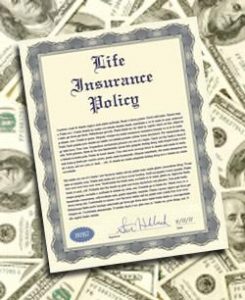As people prepare to retire, it’s not uncommon to find an old life insurance policy in their portfolio. Sometimes the policy has accumulated thousands of dollars or more in cash value. Other times, the death benefit is worth millions of dollars – if it can be kept in force until the insured dies.
Fortunately, those who find themselves with old life insurance policies they’ve been paying on for years often have several good choices. The one you choose should depend on your income, the policy, the death benefit, the insured’s health, and your financial goals.
Before you cancel a life policy, call your insurance professional and go over these questions.
1.) Is anyone financially dependent on me? Sometimes all that is needed is a change of beneficiary.
2.) What are the premiums required to keep the policy in force?
3.) Am I in poor health or likely to die before the policy expires or cancels due to non-payment of premium?
4.) Is income now more important to my family than a death benefit down the road?
5.) Do I want to maximize a gift to charity?
6.) Does the policy fund a business need, such as a buy-sell agreement?
 Ask your agent for what is termed an “in-force illustration” of the insurance policy. This is a document that spells out how the policy is projected to perform over time. Ask for it to cover the following scenarios:
Ask your agent for what is termed an “in-force illustration” of the insurance policy. This is a document that spells out how the policy is projected to perform over time. Ask for it to cover the following scenarios:
What may happen if you pay the highest premium you can afford.
What may happen if you pay the minimum necessary premium to keep the policy in force.
What may happen if you stop paying premiums altogether.
Some policies may be self-sustaining: The cash value is sufficient to cover projected premiums for a long time. In other cases, failure to pay the minimum required premium will deplete the cash value over time, and the policy will lapse when your cash value reaches zero.
Note: If your cash value is greater than the total premiums you paid in over time, cancelling your policy or allowing it to lapse could result in a capital gains tax liability on the difference.
Maximizing life insurance
If your family still needs life insurance, the simplest thing is usually to keep the policy in force. You may also apply for a smaller policy with lower premiums, or use accumulated cash values to purchase a smaller, fully paid-up life insurance policy with no more premiums due.
Some carriers offer life insurance policies that also provide long-term care benefits as well.
Meanwhile, the cash value in a permanent life insurance policy may prove to be a great place for emergency funds or a tax-advantaged cash savings.
Maximizing income
If you want or need income, you can use cash values to supplement your retirement income. You can draw down dividends tax-free: Dividends from mutual insurance companies are considered a return of premium and not taxable. You can withdraw interest earned at capital gains rates, gain over basis, or borrow against your death benefit.
Alternatively, you can elect to convert your life insurance policy into an annuity, with no tax on the transaction, using a Section 1035 exchange. With an annuity, you can get contractually guaranteed income that lasts as long as you live, or as long as either you or another person whom you select lives.
This option provides you and your heirs more income security in retirement. The disadvantage: You give up the life insurance.
In any case, it’s important to make this decision with the guidance of a qualified insurance or financial professional.